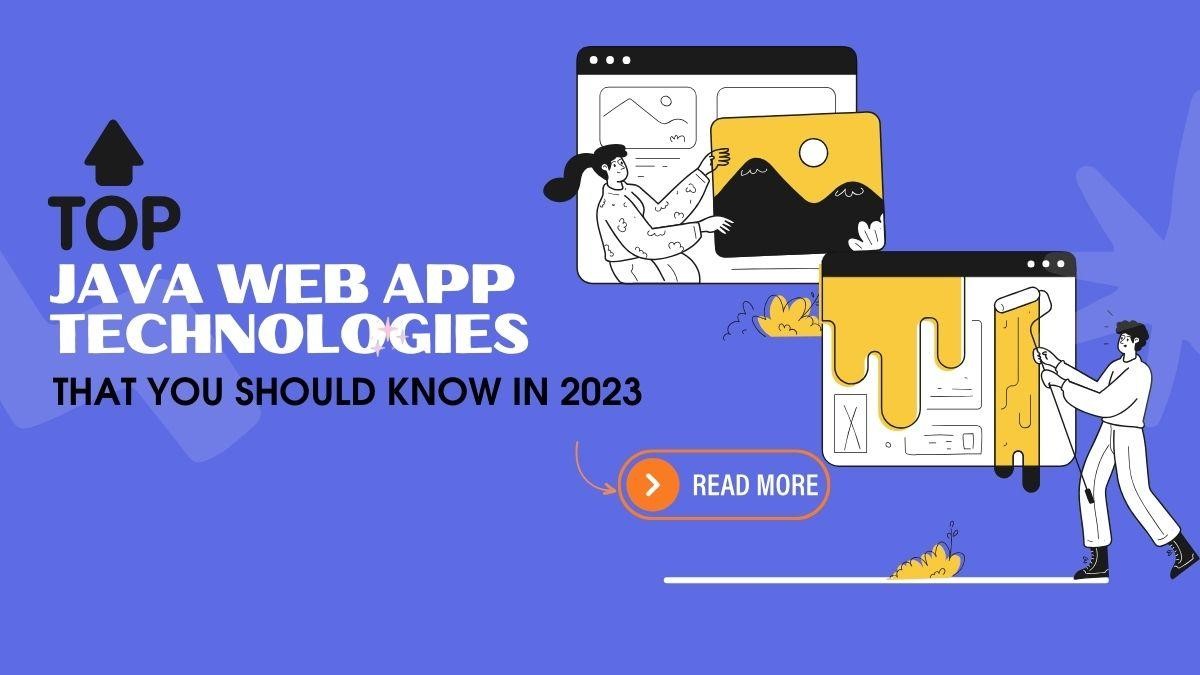Java has been a prominent application development for many years due to its robustness, versatility, and scalability. This made Java web application a preferred choice that can handle tasks and large-scale operations. As we are in 2023, Java continues to evolve and offers a wide range of technologies to cater to various development needs. Let’s explore some of the top Java web app technologies that you should know and master.
Servlet API
Servlets are the fundamental component of Java web applications. They provide a way to extend the capabilities of web servers by handling HTTP requests and generating dynamic responses. These are Java classes that can be used to create dynamic web pages, process form data and perform other server-side tasks. Servets follow the Java Servlet API, which defines a set of classes and interfaces that developers can use to build web applications.
Some key features and benefits of using Servlets in your web applications include:
Platform Independence
Servlets are written in Java, making them platform-independent. They can run on any web server that supports the Servlet API, making it easier to migrate applications between different server environments.
Efficiency
Servlets are efficient because they are loaded into memory once and reused for multiple requests. This reduces the overhead of creating a new process for each request.
Session management
Servlets provide built-in support for managing user sessions, which is essential for maintaining user-specific data between requests.
Security
Java’s security model is applied to Servlets. This ensures that web applications are secure by default. You can also implement custom security measures if required.
Java Server Pages
These are other essential technologies for building dynamic web applications in Java. It allows developers to embed Java code within HTML templates, making it easier to create dynamic web pages. Here to some key aspects of JSP:
Seamless Integration
Java Server Pages seamlessly integrate Java code with HTML, reducing the complexity of managing both the presentation and business logic of web applications.
Reusable components
Java server pages encourage the creation of reusable components called custom tags. This simplifies the development process and improves code maintainability.
Tag libraries
Java server pages support the use of tag libraries like Java Server Pages Standard Library and Java Server Faces to enhance the functionality of Java server pages
Performance
These pages are compiled into servlets by the application server, resulting in better performance compared to interpreting code at runtime.
Java Database Connectivity API
The Java Database Connectivity API is a vital component for Java web applications that need to interact with databases. It provides a standard interface for connecting to relational databases and executing SQL queries. Here’s why Java Database Connectivity is crucial for Java web development:
Database Independence
It allows developers to write database code and enable apps to work with different database management systems without many changes.
Security
Java Database connectivity supports secure connection through authentication and authorization mechanisms. This ensures that only authorised users can access and manipulate data.
Transactions
It provides support for transactions which allows developers to group multiple SQL statements into a single transaction. Thereby, ensuring data consistency and integrity.
Scalability
The technology helps in building scalable web applications that can handle increasing loads by efficiently managing database connections and resources.
Java Persistence API
This is a Java specification for managing relational data in web applications. It simplifies the process of working with databases by providing a high-level, object-orientation approach to data persistence. Key benefits of using Java persistence include:
Object Relational Mapping
It allows developers to map Java objects to database tables. This eliminates the need to write complex SQL queries for basic operations:
Portability
JPA implementations such as Hibernate and EclipseLink offer database portability. This allows developers to switch between different database management systems with minimum changes in the code.
Caching
It supports caching mechanisms which can significantly improve the performance of database operations by reducing the number of queries sent to the database.
Query language
The technology includes the Java Persistence Query Language which is similar to SQL but operates on Java objects. It offers a more intuitive way to retrieve and manipulate data.
Transaction Management
JPA seamlessly integrates with the Java Enterprise Edition transaction management system. This ensures data consistency within transactions.
JavaServer Faces Technology
It is a framework for building web user interfaces in Java-based applications. It simplifies the development of web-based user interfaces by providing a component-based architecture. Here’s how this technology is noteworthy to get best for Java web app development:
Component-Based Development
Java server faces promote a component-based development approach. This allows developers to create reusable UI components and assemble them to build web interfaces quickly.
Rich Set of Components
It offers a wide range of built-in UI components including input fields, buttons, tables, and charts. This makes it easier to create future-rich web applications.
Integration
Java server faces seamlessly integrate with other Java EE technologies, such as Enterprise JavaBeans, JPA, and Contexts and Dependency Injection. This enables the development of robust enterprise applications.
Accessibility
The server prioritises accessibility by providing accessibility features and support for Accessible Rich Internet applications attributes, ensuring that web applications are inclusive.
Wrapping Up
Java web application development continues to evolve offering a plethora of technologies and frameworks to cater to diverse development needs. These technologies remain the top choice of Java development companies as they provide essential tools for building robust, scalable, and feature-rich web applications.
Whether you want to hire a Java developer for your project or looking for a Java development company, these technologies must be on your radar for the development process. Using these technologies and staying up-to-date will enhance Java web development and also enable you to create innovative and competitive web applications. As the technologies continue to evolve, Java’s adaptability and enduring relevance make it a valuable skill set for developers worldwide.
